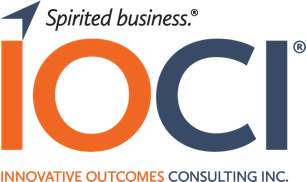
At some point in corporate parlance, impulsive morphed into a negative trait, a label leaders run from as fast as their legs can carry them.
It’s a mistake women in management positions make all too often.
Impulsiveness involves two components, according to researchers Idit Shalev at Yale University and Michael Sulkowski at the University of Florida: locomotion and assessment.
Locomotion involves initiating and maintaining goal-directed behavior without undue distractions or delay – aka just getting on with it. Assessment is self-evaluating goals and making alternative plans when necessary.
High scores on the assessment scale fuel overly critical and comparative thinking; high scores on the locomotion scale are associated with decisiveness and a lack of counterfactual thinking and regret.
Which is why in some cases, impulsivity is the stuff of genius. It sparks creativity. And each of 16 identified personality types interact with it; it pushes the analyst and diplomat traits, for example, to follow their visions, while it encourages the explorer type to take a risk to achieve a goal.
Here’s the rub
Research shows that men tend to be more impulsive than women, so they are more likely to volunteer for leadership while women hold back. It’s all part of a confidence gap, but the good news is, you can increase the locomotion side of impulsivity and strengthen your leadership potential as a result.
Increase your self-awareness.
Through journaling, become aware of situations where you hesitate. What are you really trying to avoid? Why does this frighten you? Deconstructing the fear breaks down your resistance.
Practice on inconsequential topics.
 Have a craving for an ice cream cone? Stand up and go get one! Ask a colleague to join you.
Have a craving for an ice cream cone? Stand up and go get one! Ask a colleague to join you.
Skip washing dishes to instead watch Netflix with your daughter. Strengthen the circuits in your brain so that you become comfortable with following through on an impulse.
Opportunities not coming fast enough? Take a day off and plan nothing. Start it by sitting down and waiting to see which idea, which fun impulse is the strongest. Don’t watch the clock and don’t start cleaning while you think; this exercise isn’t about the activity but about training your instincts but to act on ideas. When you finish the first idea, sit down and start again.
Tell it like it is.
Next time a colleague asks if something is bothering you, don’t hide behind the standard, “I’m fine.” Give them an overview.
“Our appetite for risk-taking often determines not only the measure of reward, but the impact we’re able to make,” says Marialane Schultz, CEO of IOCI. “So for women, building our capacity and confidence to be impulsive, take risks and even have a little fun while we’re at it is absolutely fundamental to our ability to rise in our organizations.”
Marialane Schultz is the founder of IOCI. She helps individuals and organizations perform at their best, do meaningful work and be impactful through customized coaching and consulting engagements.

